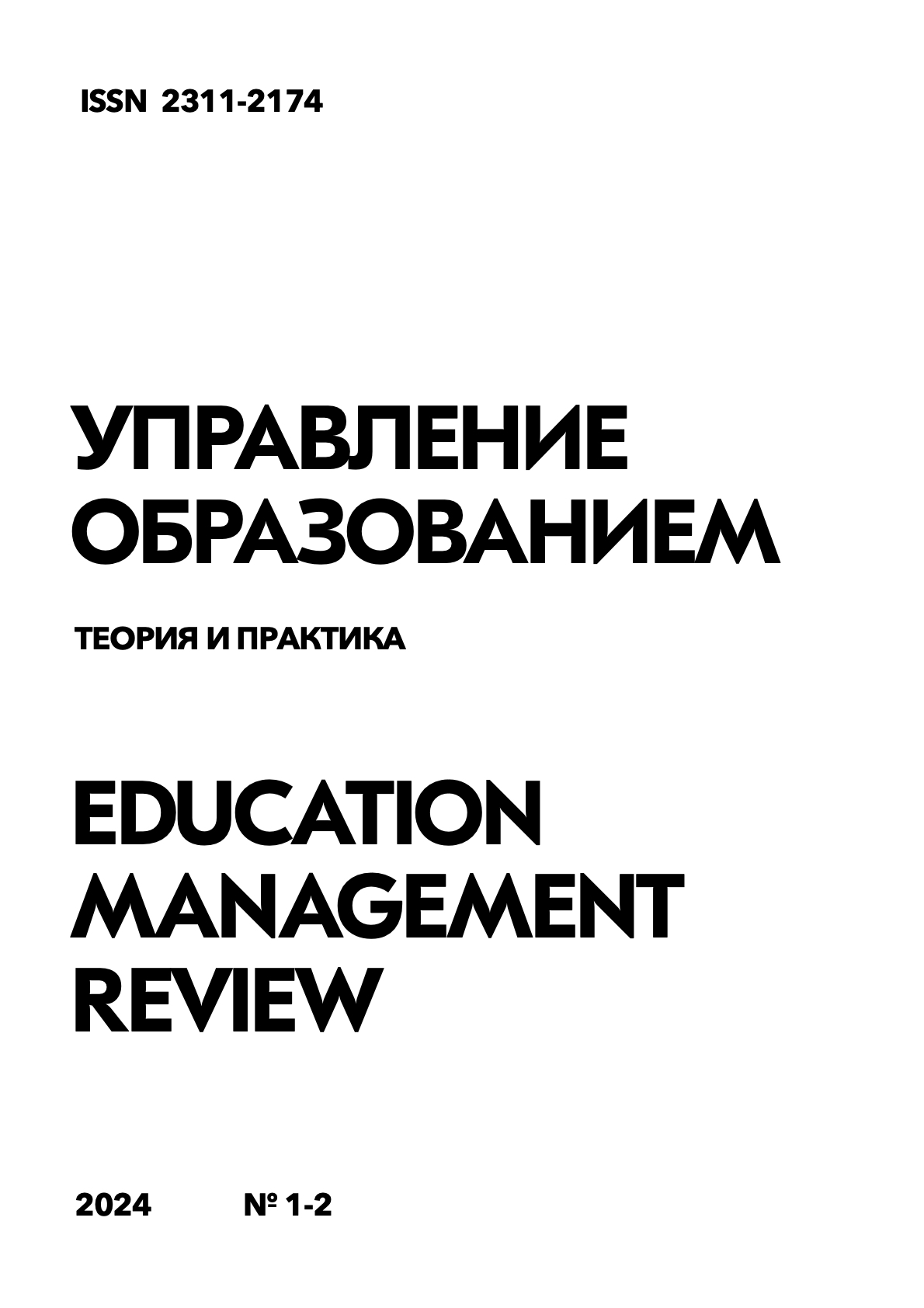Development and testing of a comprehensive program for the formation of performing skills among piano students, taking into account modern requirements for music education
DOI:
https://doi.org/10.25726/o9368-2561-6775-vKeywords:
musical education, piano performance, performing skills, piano students, comprehensive training programAbstract
In the era of rapid development and evolution of musical art, the problem of improving the system of professional training of pianists in higher educational institutions is of particular relevance. This research is devoted to the development and testing of an innovative comprehensive program aimed at the formation and optimization of performing skills among piano students, taking into account modern requirements for music education. The theoretical and methodological basis of the research was made up of fundamental works in the field of music pedagogy and psychology (L.A. Barenboim, G.M. Tsypin, A.L. Gotsdiner), as well as conceptual provisions of the theory and methodology of teaching piano playing (G.G. Neuhaus, S.E. Feinberg, A.A. Nikolaev). The empirical base included the results of pedagogical observations, questionnaires, and interviews of 120 students and 30 teachers of piano faculties of six leading music universities in Russia. To assess the effectiveness of the developed program, a set of diagnostic techniques was used, including adapted tests of musical abilities by K. Sishor and G. Wing, a scale of self-assessment of performing skills by J. Kendrick, as well as the author's method of expert assessment of the quality of piano performance. Statistical data processing was carried out using the Student's t-test and the Mann-Whitney U-test (p≤0.05). In the course of the research, an innovative comprehensive program for the formation of performing skills of piano students based on the principles of consistency, individualization, intensification of learning and interdisciplinary integration was substantiated, developed and experimentally tested. The key components of the program were: 1) purposeful development of basic performing skills (sound production, articulation, fingering, pedalization) through a system of specially designed exercises using modern technical training tools (digital pianos with feedback, computer training programs); 2) formation of stage endurance and emotional stability by modeling concert situations in the classroom and participation in virtual online concerts; 3) the expansion of musical horizons and the development of performing thinking through the study of a wide repertoire involving methods of performing analysis and project work. According to the results of the formative experiment, 87% of students in the experimental group (n=60) had statistically significant positive changes in all assessed parameters of performing skills compared with the control group (p<0.01).
References
Алексеев А.Д. Методика обучения игре на фортепиано: учебное пособие для вузов. М.: Музыка, 2020. 288 с.
Баренбойм Л.А. Музыкальная педагогика и исполнительство. Л.: Музыка, 1974. 336 с.
Готсдинер А.Л. Музыкальная психология. М.: Музыка, 2009. 192 с.
Грицай С.В. Инновационные технологии в современной музыкальной педагогике // Вестник музыкальной науки. 2019. № 3. С. 78-85.
Камалова Л.С. Формирование музыкально-слуховых образов-представлений в работе над развитием исполнительских навыков музыканта // Общество: социология, психология, педагогика. 2017. № 9. С. 62-66.
Карасева М.В. Перемена времени во время перемен: к полувековым итогам развития музыкально-слухового образования в России // Научный вестник Московской консерватории. 2010. № 1. С. 27-43.
Карасева М.В. Компьютерное моделирование процесса формирования пианистических навыков // Труды Международного симпозиума «Компьютерные науки и информационные технологии». Саратов: Изд-во СГУ, 2018. С. 336-339.
Карнаухова Т.И., Смолина Т.В., Топилина И.И., Остапенко Е.А., Бурякова Л.А., Дядченко М.С., Помазкина Н.Ф., Карнаухова Т.И., Четверикова Г.М., Шаханская А.Ю., Смолин Ю.А. Активизация эмоциональной отзывчивости на музыку у студентов в процессе интерпретации музыкального образа // Теория и практика профессиональной подготовки педагогов в условиях современного музыкального и художественного образования. Таганрог: Таганрогский институт им. А.П. Чехова, 2015. С. 164-183.
Кирнарская Д.К. Психология музыкальной деятельности: Теория и практика. М.: Академия, 2014. 384 с.
Корыхалова Н.П. За вторым роялем: Работа над музыкальным произведением в фортепианном классе. СПб.: Композитор, 2018. 552 с.
Либерман Е.Я. Работа над фортепианной техникой. М.: Классика-XXI, 2019. 148 с.
Майкапар С.М. Музыкальный слух: его значение, природа, особенности и методы правильного развития. 3-е изд., испр. и доп. Челябинск: MPI, 2005. 254 с.
Нейгауз Г.Г. Об искусстве фортепианной игры: Записки педагога. М.: Дека-ВС, 2007. 312 с.
Орлов В.С. О философии фортепианного искусства Клода Дебюсси (на примере его цикла 24 прелюдий) // Искусство. Педагогика. Культура: сборник научных и научно-методических статей. СПб.: Санкт-Петербург. отделение об-ния педагогов фортепиано «ЭПТА», 2020. С. 118-129.
Петрушин В.И. Музыкальная психология: Учебное пособие для вузов. М.: Академический Проект; Трикста, 2009. 400 с.
Смирнова М.В. Развитие эмоциональной устойчивости музыканта-исполнителя: Учебное пособие. Тамбов: ТГМПИ им. С.В. Рахманинова, 2021. 82 с.
Фейнберг С.Е. Пианизм как искусство. М.: Классика-XXI, 2017. 560 с.
Цыпин Г.М. Обучение игре на фортепиано: Учебник для вузов. М.: Юрайт, 2017. 188 с.
Nicolls S. Getting a Handle on Pianos with Haptic Technology // Musical Times. 2018. V. 159. № 1942. pp. 87-89.
Woronchak M., Comeau G. Developing Musical Expression with Technology // The Oxford Handbook of Technology and Music Education. Ed. by S.A. Ruthmann, R. Mantie. New York: Oxford University Press, 2017. pp. 457-472.




